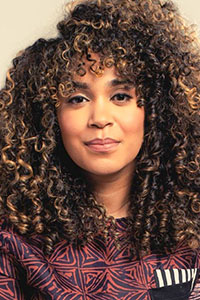 Elizabeth Acevedo
Elizabeth Acevedo
Elizabeth Acevedo is an Afro-Dominican slam poet whose poetry addresses themes of sex, queerness, identity, and Catholicism. She came out with debut young adult novel, The Poet X, earlier this year, which was longlisted for the National Book Award. She has performed her poetry all over the world, from Kosovo to South Africa, Madison Square Gardens to Lincoln Center. Major works: “The Poet X”
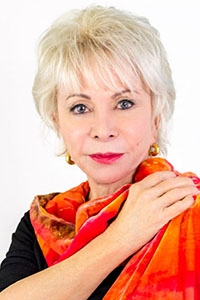 Isabel Allende
Isabel Allende
Isabel Allende is a Chilean writer who writes extensively in the magical realist genre. Her works tell important stories about the experience of Latin American women and have found success worldwide. Allende is a shining example of a writer who has found both commercial and critical success and a towering figure in the world of Latin American literature. Major works: “House of the Spirits”
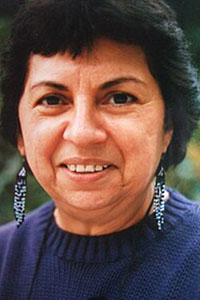
Gloria Anzaldua
Gloria Anzaldua was an important figure in the development of introducing Chicano/a studies to Critical Race Studies and Women’s Studies. Anzaldua made it a point to regularly challenge the labels assigned to her by others, seeing herself as someone who sat at the intersection of many, equally valid identities. Her theories about “border culture,” mestiza culture, and bilingualism are enduring features of literary studies courses. Major works: “La Frontera/Borderlands: The Mestiza”
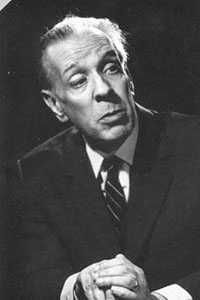 Jorge Luis Borges
Jorge Luis Borges
Argentinian short storyist, essayist, translator, and poet is often credited with bringing international attention to Spanish-language literature. Blind by the age of fifty-five, Borges innovated new ways to write symbolism and imagery, drawing on a diverse range of subjects such as modernism, mathematics, and philosophy. He is considered the originator of magical realism as a literary style. Major works: “Ficciones,” “Labyrinths”
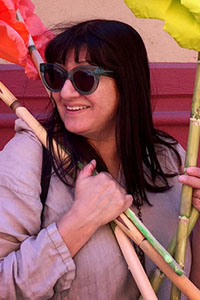 Sandra Cisneros
Sandra Cisneros
Sandra Cisneros is a Mexican-American writer who helped bring attention to the modern Chicano literary movement of the 80s and 90s. Cisneros often draws on her own experiences as someone who grew up between cultures and her work tackles themes of femininity, sexuality, cultural hybridity, and social and economic inequality. Major works: “The House on Mango Street,” “Woman Hollering Creek and Other Stories”
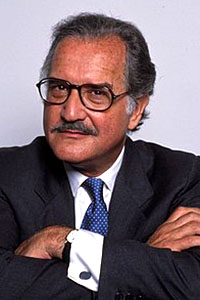 Carlos Fuentes
Carlos Fuentes
In addition to being the Mexican ambassador to France from 1975 to 1977, Carlos Fuentes managed to become one of his country’s most celebrated novelists. His works detail large, complex histories in the Hispanic world and profess a deep belief in the human spirit. Major works: “The Death of Artemio Cruz”
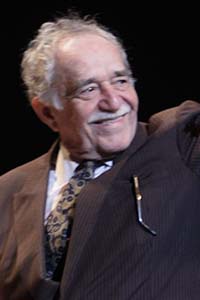 Gabriel Garcia Marquez
Gabriel Garcia Marquez
Columbian writer and journalist Gabriel Garcia Marquez was perhaps one of the most famous Latin American writers in the world. He was on the vanguard of the Latin American literary boom of the 1960s and helped pioneer magical realism, a defining feature of many works of Latin American and postcolonial literature. In 1982, Marquez was honored with the Nobel Prize for Literature for “his novels and short stories, in which the fantastic and the realistic are combined in a richly composed world of imagination, reflecting a continent’s life and conflicts.” Major works: “One Hundred Years of Solitude,” “Chronicle of a Death Foretold,” “Love in the Time of Cholera”
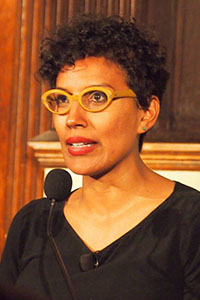 Aracelis Girmay
Aracelis Girmay
American poet Aracelis Girmay confronts themes of connection, transformation, and loss across cities and bodies in her poetry. The Boston Globe named her book, Black Maria, as one of the best books of 2016. A graduate of Connecticut College, Girmay went on to receive her MFA from New York University. Major works: “Kingdom Animalia”
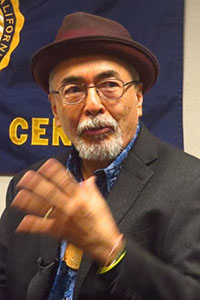 Juan Felipe Herrera
Juan Felipe Herrera
The fifty-first United States Poet Laureate, Juan Felipe Herrera was America’s first Chicano poet laureate. His works often meditate on his history as a child of migrant workers. He is interested in the intersection of community and art and much of his poetry considers what it means to be on the border of U.S. and Mexican culture. Major works: “Half the World in Light”
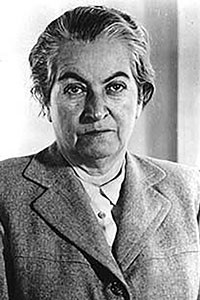 Gabriela Mistral
Gabriela Mistral
Born Lucila Godoy Alcayaga, Gabriela Mistral was the pseudonym of this Chilean poet. She became the first Latin American author to win the Nobel Prize in Literature. According to the Nobel Prize organization, Mistral’s poetry expresses the aspirations of Latin America.
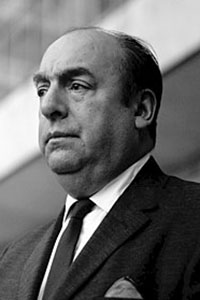 Pablo Neruda
Pablo Neruda
The “Poet of Love” was born Ricardo Eliecer Neftali Reyes Basoalto in southern Chile. He changed his name to avoid problems with his family, who disapproved of him becoming a poet. Neruda went on to win the Nobel Prize in Literature in 1971 and held several diplomatic posts throughout the world.
